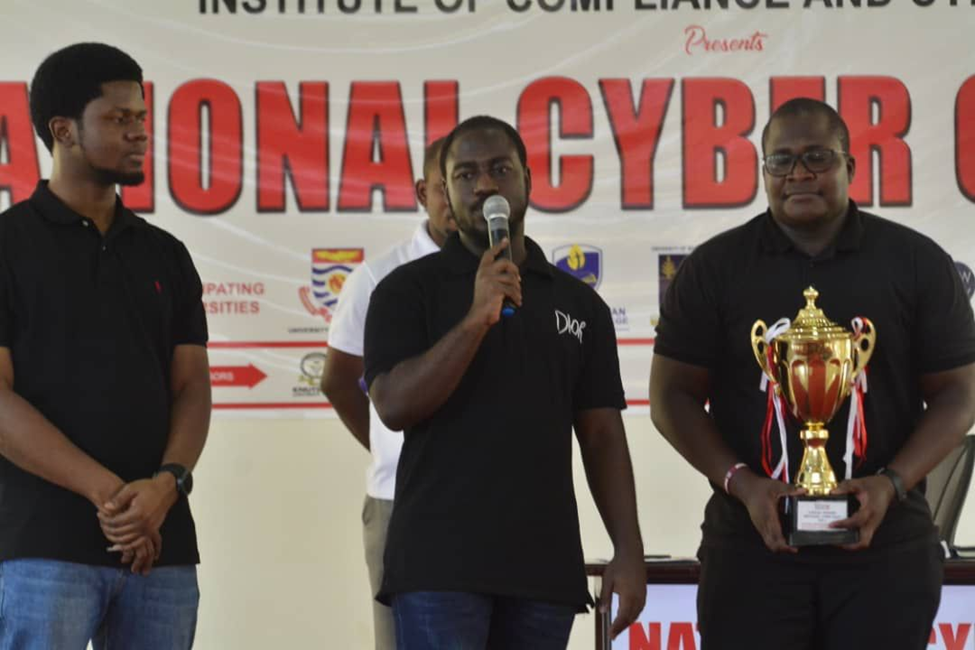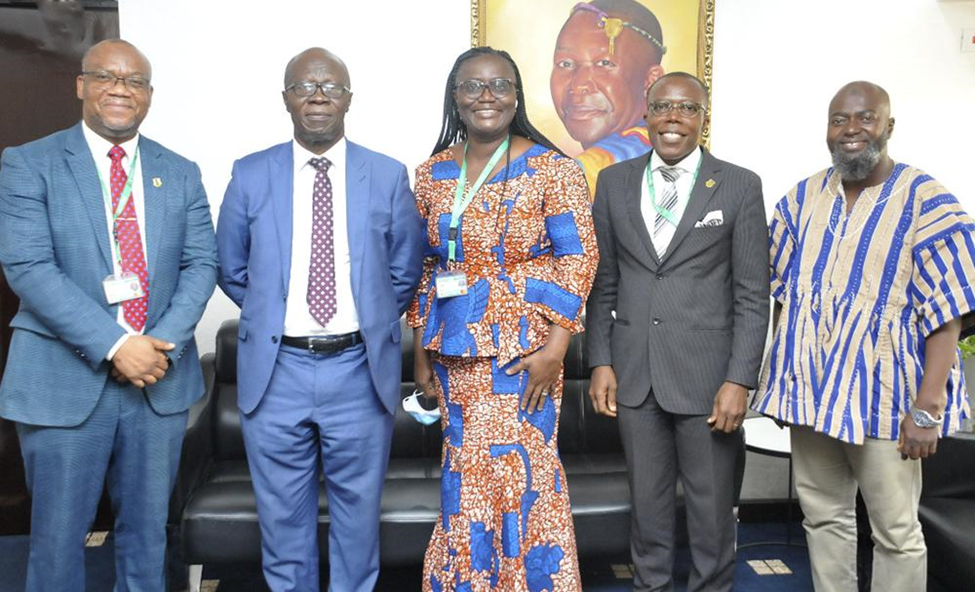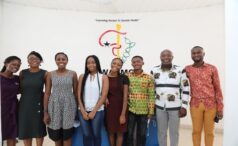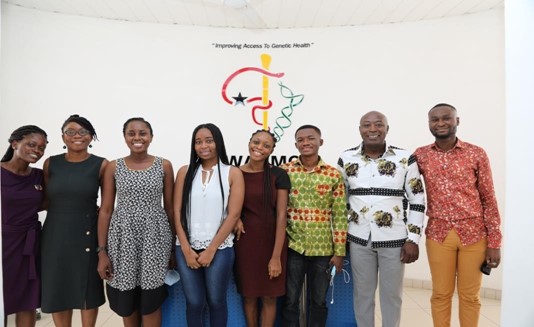The Fight against COVID-19: How ACE-Impact health centres cutting-edge & innovative research supported a stronger regional response
Written By Mrs. Felicia Nkrumah Kuagbedzi
The African Continent, and by extension the world, suffered the brutal impact of the COVID-19 pandemic in its various sectors including the higher education sector. This article profiles the impressive contribution of the Health Centres under the ACE Impact project, in responding to the challenges brought about by the COVID-19 pandemic on society.
Responses by the Centres, included the conduction of groundbreaking scientific research, technological innovations and sensitization of the general public. Others included the provision of technical advice to governments and various national and continental level institutions on the management of the COVID-19 pandemic.
Key Interventions
The centres have been instrumental in conducting cutting-edge research to guide the development of new approaches to disease diagnosis, prevention, and control. During the heat of the COVID-19 pandemic, the African Centre of Excellence in Genomics of Infectious Diseases (ACEGID) hosted by the Redeemer’s University in Nigeria and the West Africa Centre for Cell Biology of Infectious Pathogens (WACCBIP) hosted by the University of Ghana were the first institutions in the sub-region to sequence the SARS-CoV 2 virus genomes to track mutations. In addition, CERHI and ACENTDFB (both in Nigeria) made available their ultra-modern laboratories in support of PCR tests for the COVID-19 virus.
The Conduction of Groundbreaking Scientific Research
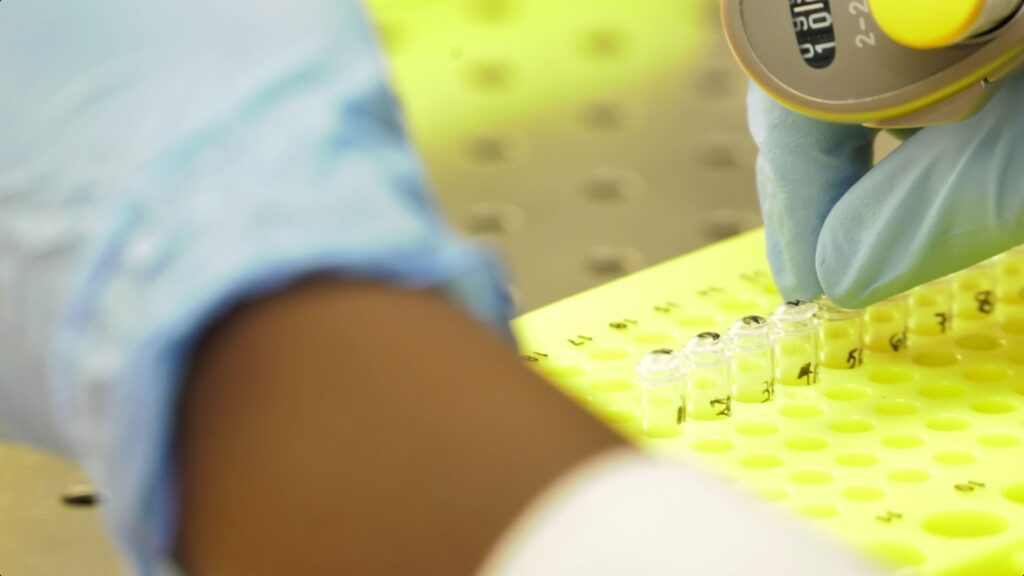
Centres of Excellence in the fields of genomics and infectious diseases were instrumental in the genomic sequencing of the virus. Notable among the centres were ACEGID and WACCBIP The centres successfully sequenced genomes of SARS-CoV-2 (the virus that causes Covid-19) and also tracked mutations of the virus leading to the discovery of the new variants in the respective host countries and the continent at large. ACEGID alone tested over 141,000 samples from Nigeria, Burkina Faso, Somalia, Rwanda, Gabon and Algeria, and was one of the first within the region to identify the Alpha, Beta, Delta, Omicron, 20A, 20B, 20C, 20G, among other variants of the virus. WACCBIP was also the only center to conduct nation- wide sequencing covering all the 16 regions of Ghana. Between 2020-2022, over 20,000 tests were conducted across Ghana, Nigeria and Burkina Faso. The center also identified the first cases of Alpha, Eta, Omicron, BA2, BA4 among other variants in Ghana.
Again, ACEGID developed a COVID 19 screening tool to measure individual risk levels. WACCBIP also developed a scalable test that can perform large scale screenings and rapidly test thousands to millions of samples at a given time as well as an affordable Antigen test developed in collaboration with the University of Southampton. Several research publications on mutations and management of the COVID-19 virus have been published by both centres including the first African manuscript of genetic analysis of SARS-CoV-2 variations published by WACCBIP.
Collectively, ACEGID and WACCBIP supported over 30 other African countries in terms of genome sequencing, training of scientists, and guiding government policies in terms of managing the spread of the virus. These countries include Algeria, Benin, Burkina Faso, Cameroon, Central African Republic, Chad, Congo Republic, Cote D’Ivoire, Djibouti, DR Congo, Egypt, Ethiopia, Gabon, Ghana, Liberia, Mali, Morocco, Namibia, Niger, Nigeria, Rwanda, Sierra Leone, Seychelles, Somalia, Sudan, among others.
The contributions of these centres have been acknowledged by governments of the host countries, continental and international bodies -including the World Health Organization and the Africa Centre for Disease Control and Prevention, media houses and various stakeholders within and outside the science fraternity. In addition, WACCBIP and ACEGID received funds from various donors and development partners to strengthen COVID-19 research among other research activities of the centres. ACEGID received over US$ 58million from the Rockefeller Foundation, ELMA Philanthropies, the Bill and Melinda Gates Foundation as well as the Centre for Disease Control and Prevention, among others. WACCBIP also benefited from over US$6 million in funds from the Bill and Melinda Gates Foundation, the ACE-partner Programme through the WANIDA Network, K FCDO Ghana Partnerships Beyond Aids Programme, WELLCOME/FCDO Grant, the Rockefeller Foundation, among others.
Other centres such as the Centre of Excellence in Reproductive Health Innovation (CERHI) and the Africa Centre of Excellence for Neglected Tropical Diseases and Forensic Biotechnology (ACENTDFB) both in Nigeria also availed their centres’ laboratories for further relevant research.
Technological Innovations
Some of the non-health thematic ACEs came up with technological inventions which contributed greatly to the fight against the COVID-19 pandemic. The Centre for Mathematics, Computer Science, and ICT (CEA-MITIC), Senegal developed a software for the electronic management of COVID-19 patients’ files and an application (app) for self-screening. The app is used to assess user symptoms and exposure to determine their risk of infection. In addition, ACEGID developed a COVID-19 vaccine candidate, which showed over 90 percent effectiveness during preclinical trials. The centre for the Teaching & Learning of Math and Science for Sub-Saharan Africa (CEA-MS4SSA) produced solar-powered hand washing equipment for institutions in Niger. Given that power supply is intermittent in many places across Africa, such solar-powered handwashing equipments are highly essential, as they ensure a smooth and uninterrupted operation process, thus facilitating frequent hand washing, and curtailing the spread of Covid-19 in many communities and environments.
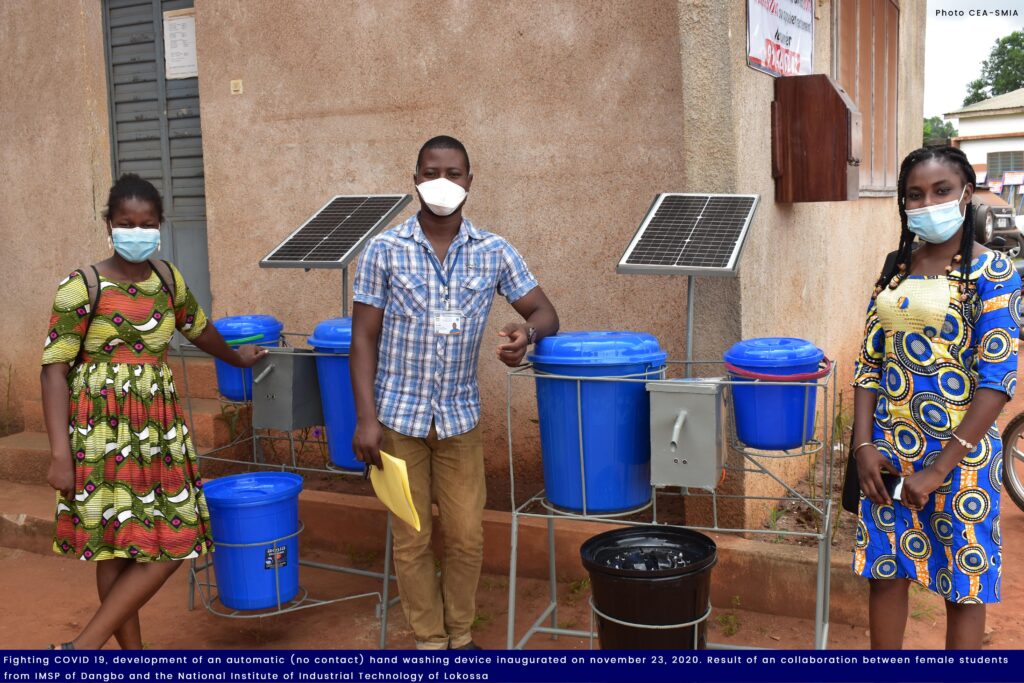
Public Sensitization and Mass Production of Protective Items
The Centres worked closely with their host universities to raise awareness about the need for heightened hygiene practices. This was achieved using different channels such as posters, digital campaigns, memos and publication in the media. ACEs such as the Centre for Public Health and Toxicological Research (ACE-PUTOR), Centre of Excellence for Population Health and Policy (ACEPHAP), Africa Centre of Excellence for Drug Research, Herbal Medicine Development and Regulatory Science (ACEDHARS), engaged in diverse sensitization campaigns to enhance knowledge of the public on the pandemic. These centres contributed greatly to the production of protective items for use in their respective countries
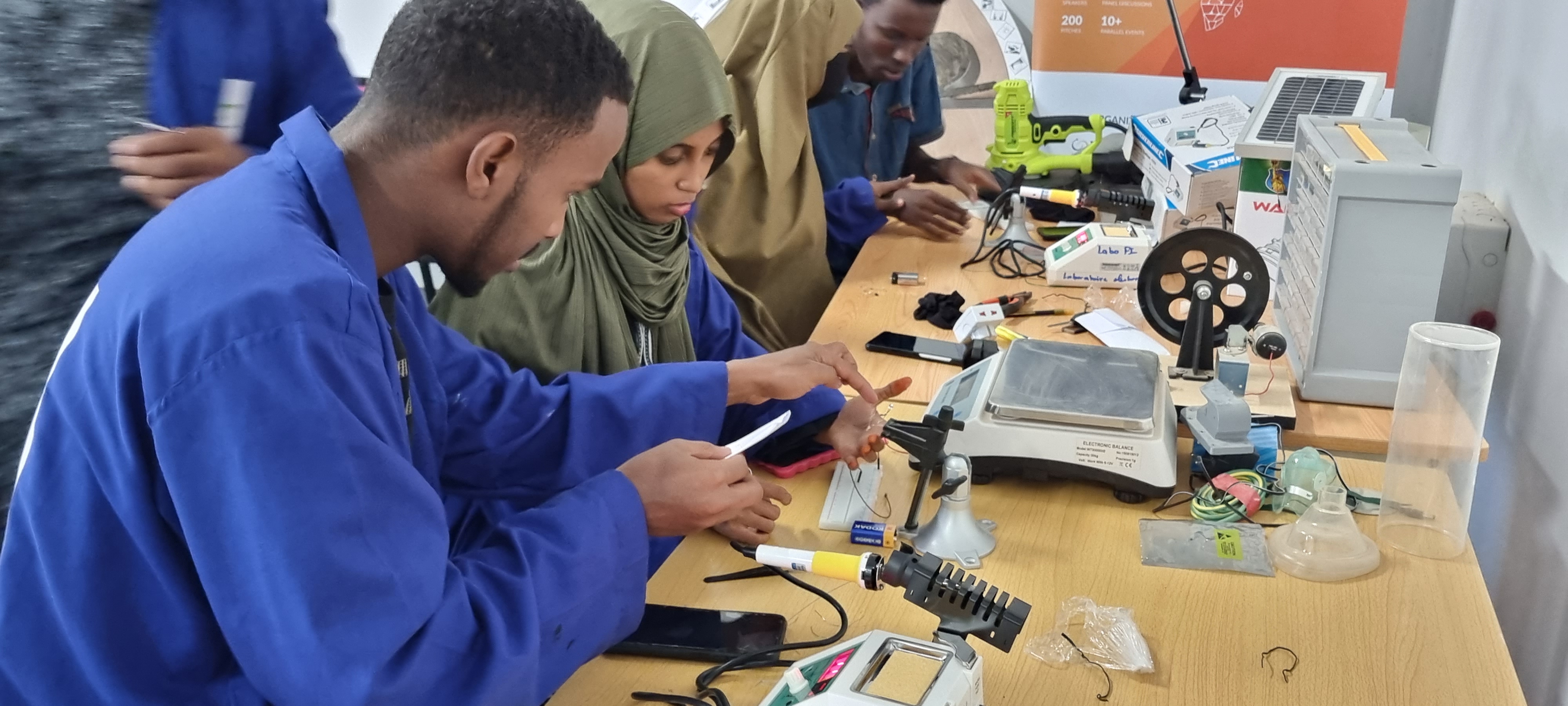


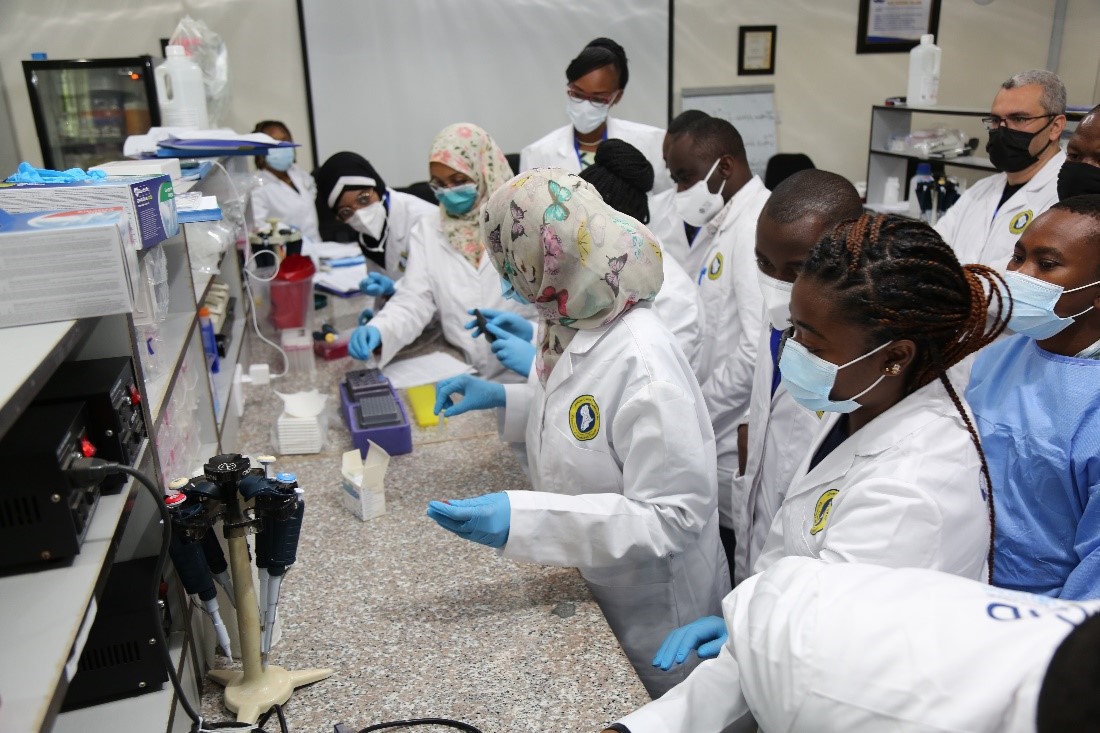
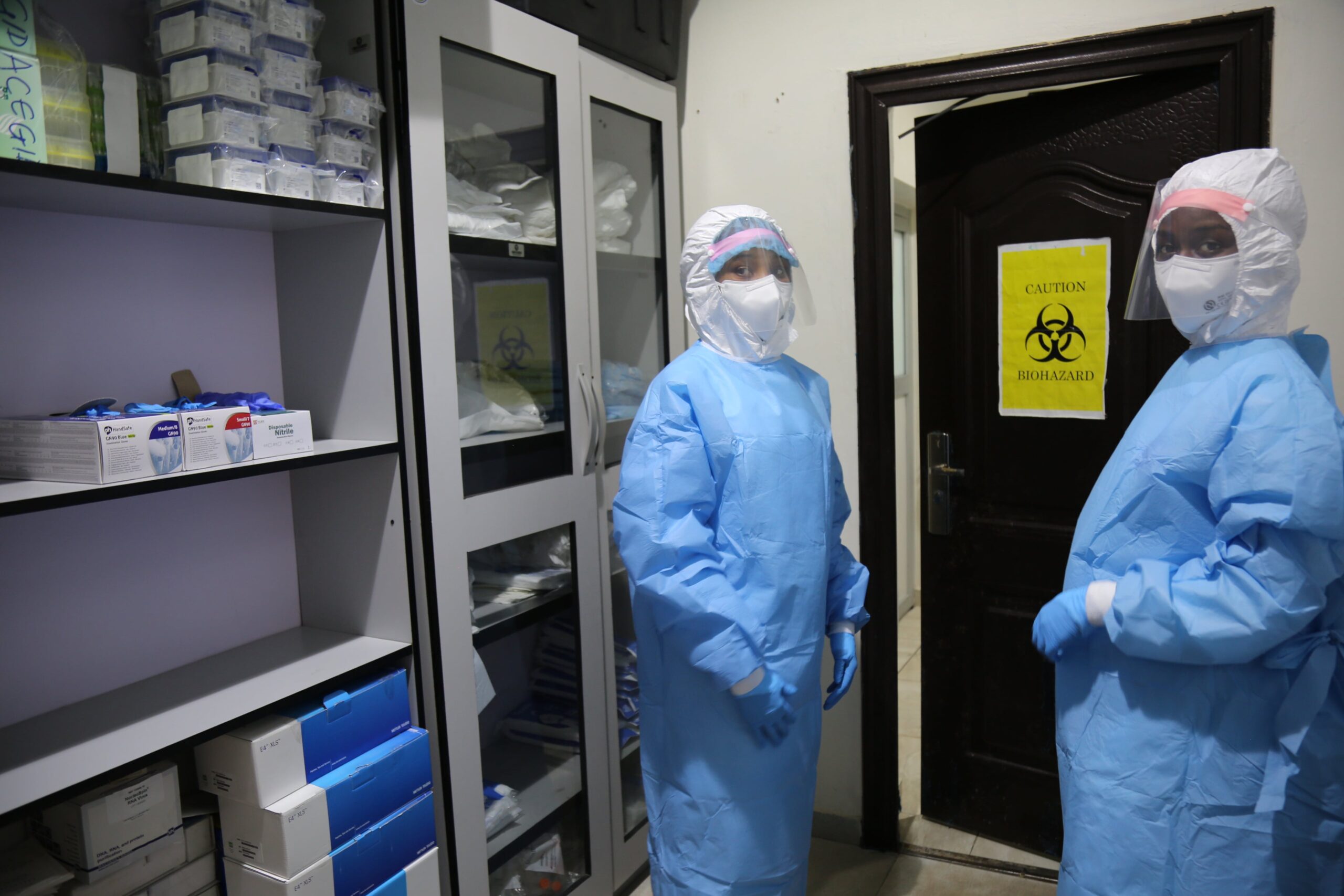



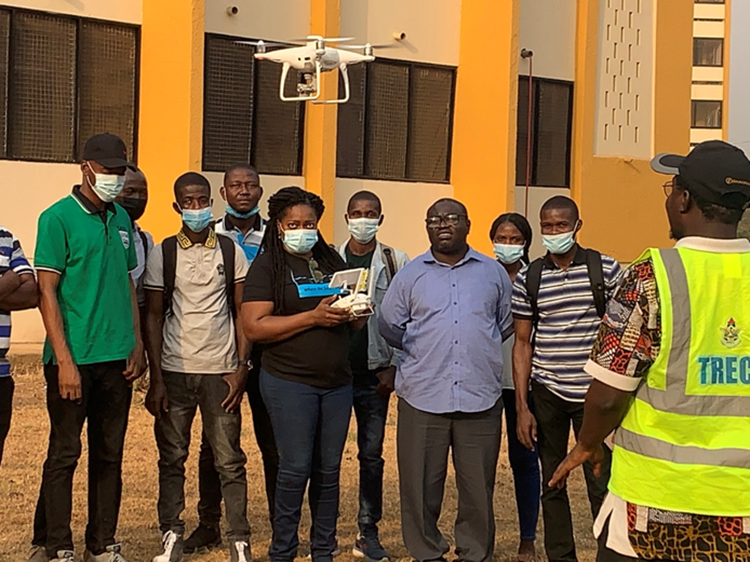
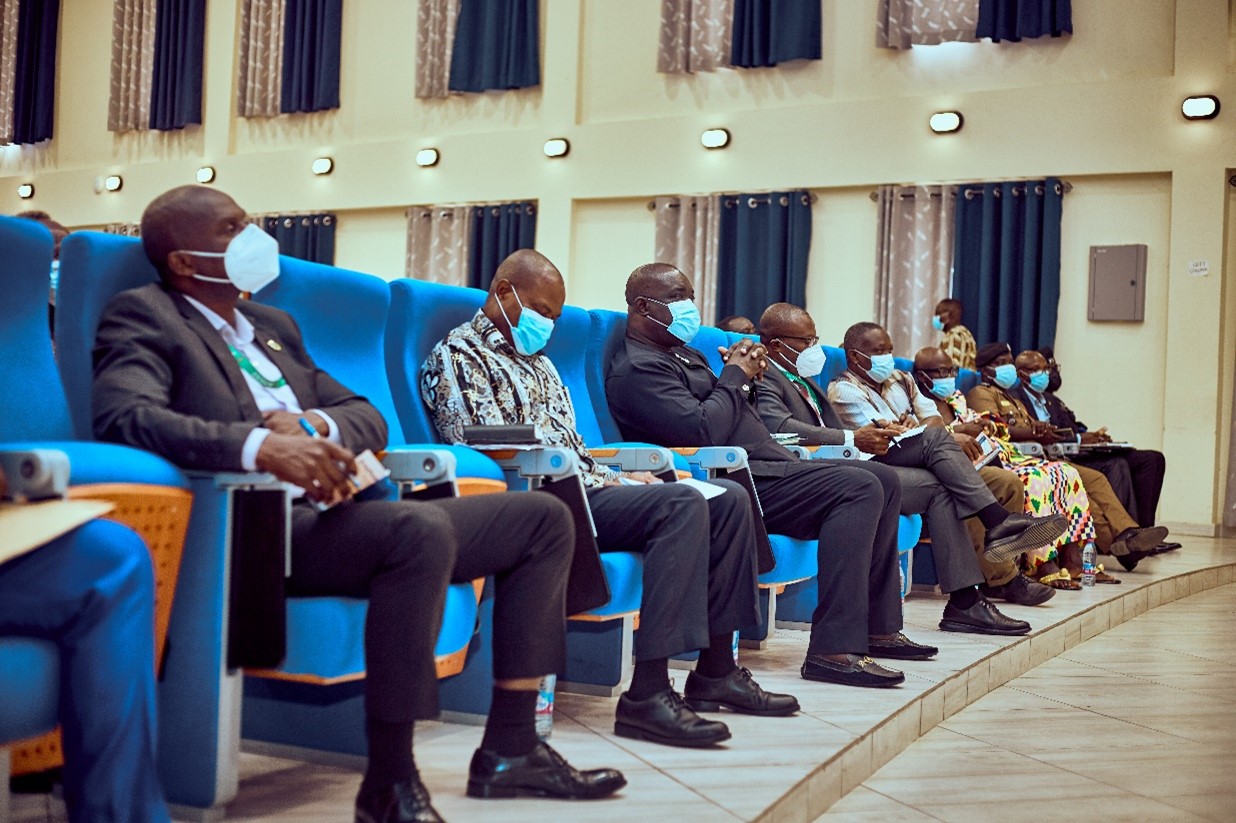
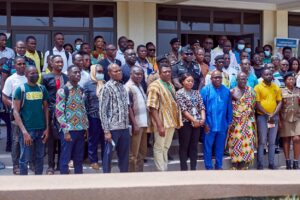 .
.